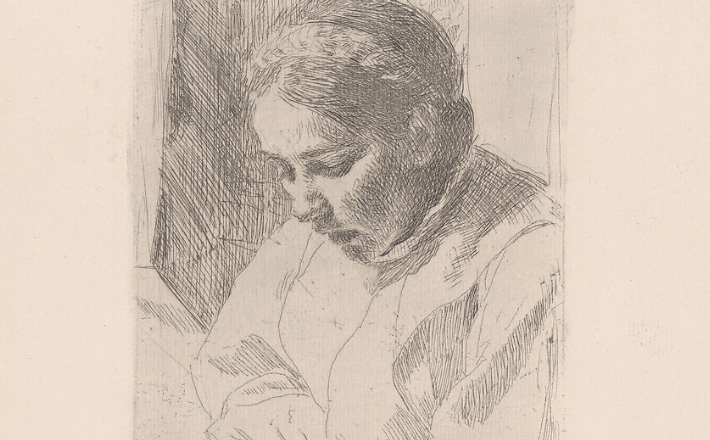Commentary on Colossians 2:6-15 [16-19]
If chapter 1 of the letter to the Colossians was filled with thanksgiving, hymns, and introductions, chapter 2 inaugurates the body of the letter, where the motivating concerns for the author come to light.1 The writer of Colossians is acutely aware that the community is being bombarded by external and internal pressures and temptations. As they continue to figure out who they are and articulate what they believe amid a hostile environment, a new “philosophy” has shown up and threatens to take hold.
We get hints about this philosophy later in the letter—it seems to be marked by extreme asceticism and rejection of the body. But even in this earlier pericope, the author declares that this new belief system is full of “empty deceit” and finds grounding in “human tradition, according to the elemental spirits of the universe,” not in Christ (verse 8). The author takes seriously the temptation of this new philosophy, particularly in the unsteady times in which the community is forming, worshipping, and figuring out how to live together.
Despite using unrelatable or somewhat enigmatic language like “the philosophy,” “elemental spirits,” and “rulers and authorities,” this text speaks powerfully to our present time—a time in which we are bombarded by powers that feel out of our control and we are therefore tempted to seek solace in ideologies, political parties, or the powers of wealth, control, or progress. Following the lead of the author of Colossians, we are invited to take seriously the ways the unsteadiness of our world tempts us to follow other philosophies, ones grounded in “human tradition” and not Christ.
This temptation is real—for the Colossian community and for us. The author of the letter knows how easy it is to buy into new ideas or systems of belief that are flashy, trendy, or appear to offer clear rules or easy solutions. And at the heart of this letter is not simply a rebuke of this new philosophy or a chastisement for falling prey to such temptations. Instead, the author extends an invitation to go “back to basics,” to remember who they are and who they are called to be.
In this pericope, the author responds to the philosophy and its temptations by reminding the people of who they are, regrounding them as followers of the God made known in Jesus. Instead of simply fighting against the philosophy, the author suggests that a resistance to its temptation is found by recentering in Christ, a point driven home throughout the text:
- First, the pericope begins with, “As you therefore have received Christ Jesus the Lord, continue to live your lives in him…” (verse 6). The language of “received” as rendered in the New Revised Standard Version is not “received” as in “earned” or “gained by faith” or “learned.” As Andrew Lincoln emphasizes, the Greek verb used (paralambano) points to “the receiving of a tradition that has been passed on.”2 Put another way, the community is invited not to lean on their own learning or understanding or effort; they are to lean into what they have been gifted by their ancestors in the faith—by those who have come before and taught them the good news. In response to the chaos and temptation of the new philosophy, they do not need to manufacture something new but can rely upon what has been imparted to them.
- Second, verse 7 continues by imploring the community to be “rooted and built up in [Christ].” This image of rootedness is a rich one that reminds the people not simply to respond to what is coming at them in the present moment, but, even more, to dig deep into the soil of their faith and community. This image of rootedness reminds them (and us!) to find sustenance not from shallow places, but from the soil of faith that has been tilled by the community and is secured by Christ. To be built up as a community in this time of challenge requires no fashionable ideology or strict ascetic regimen; it requires being rooted in Christ, “established in the faith … you were taught” (verse 7). It requires the faithful to dig deep and pull nutrients from the soil of the faith that has been gifted, a faith that has carried those who have come before.
- Third, the author of the letter invites us and the Colossian community to recenter ourselves in the truth of our baptism: “When you were buried with him in baptism, you were also raised with him through faith in the power of God, who raised him from the dead. And when you were dead in trespasses and the uncircumcision of your flesh, God made you alive together with him, when he forgave us all our trespasses” (verses 12–13). Reaffirming the reality that we are forgiven, made new, and made alive with Christ through baptism reminds the faithful that they need not be subject to any whim. Though the world continues to change, and temptations pull at our attention, we have already been made new in and through Christ in our baptism. Put simply, the author of Colossians reminds the struggling faithful to return to the grounding moment of faith—our baptism, in which we are claimed by Christ, held by the community, and affirmed as forgiven children of God.
In these days of political division, social upheaval, economic uncertainty, communal instability, and ecological degradation, we may, like the Colossian community, find ourselves tempted to buy into the promises of flashy ideologies, self-help theories, or quick solutions. We may believe that what we have is not enough to respond to the rising pressures of the time. But the invitation extended by the author of Colossians is to resist such temptation and engage such chaotic times by remembering the power of our baptism, leaning into the faith gifted and taught us by our ancestors, and grounding ourselves in Christ, “in whom the whole fullness of deity dwells … who is the head of every ruler and authority” (verses 9–10).


July 27, 2025